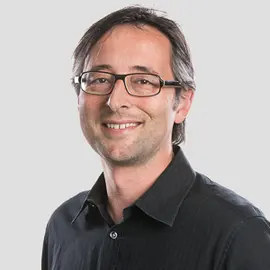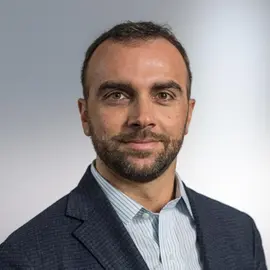Smart Mobility
The transport of people and goods is one of the cornerstones of our society and economy, spanning both global and local scales. Smart mobility solutions are needed to master the major future challenges of mobility. In concrete terms, this means that the solutions must be sustainable, economically feasible and equitable. Our team, in collaboration with our partners from universities, industry and public authorities, is actively engaged in developing applied solutions that meet these objectives.
Shaping the Future of Transportation with Intelligent Solutions
Innovative and sustainable mobility solutions are essential to address the evolving challenges of transportation, ensuring efficiency, accessibility, and environmental responsibility.
Research & Projects
Projects
Our projects are divided into three thematic areas:
- Public Transport as the Backbone of Future Mobility in Europe/Switzerland
Sustainable mobility is requiring efficient, inclusive, and technology-driven solutions to reduce car dependency. By integrating advanced modelling, autonomous services, and multimodal networks, it can become more attractive, resilient and accessible.
Methods used: Demand modeling, public transport planning, integration of (autonomous) on-demand services, microscopic and macroscopic simulation.
- Future Urban Mobility
Urban mobility solutions must prioritize sustainable logistics and efficient passenger transport, leveraging innovative planning, simulations, and new urban concepts to enhance accessibility and reduce environmental impact. A cross-system approach with data-driven evaluation methods ensures transparent decision-making for future urban transport developments.
Methods used: Transport planning; multimodal modeling, simulation and optimization (walking, cycling, public transport, private car); operations research; machine learning; routing; discrete event and agent-based simulation; KPI development.
- Planning of Multimodal Mobility Hubs
Multimodal mobility hubs facilitate seamless transitions between different modes of transport while integrating diverse services, posing complex planning and operational challenges. Through advanced methodologies such as traffic flow modeling, machine learning, and microscopic simulations, these hubs can be optimized for efficiency, safety, and sustainability.
Methods used: Traffic flow modeling, operations research, machine learning, public transport service planning, site evaluation indicators, traffic control (e.g., signal control), agent-based and microscopic traffic simulation.
The following projects represent some of our past and current research activities:
Ongoing projects:
- TMS
Optimised annual and daily timetables in SBB traffic management
- UMH
Sustainable urban logistics concepts through smart multi-hub cooperation
- MOVEO
Smart European mobility framework integrating infrastructure and vehicles for sustainable, inclusive transport systems
Completed projects:
- RTSE
Advanced railway operations through algorithmic solutions for more efficient train traffic management
- cleverpendeln
Optimized rail capacity utilization through intelligent passenger distribution systems with carriage-specific occupancy data
Teaching
Teaching is a central part of our mission at the university. Through our involvement in the Bachelor's program Mobility Science, we prepare students to address the complex challenges of future mobility systems. Our courses combine scientific foundations with practical applications and provide students with the skills needed to develop sustainable, data-driven, and user-centered mobility solutions.
The members of the team ‘Mobility Science’ and other members of the IDP are strongly involved in the Bachelor course ‘Mobility Science’ and the Master of Science in Engineering (MSE).
Lectures
We are primarily involved in the Mobility Science degree program. An overview of the full-time curriculum can be found here.
The following courses are taught by our group:
Bachelor courses (language of instruction: German):
- Leittechnik und Kundeninformation (study programme: MO)
- Modellierung und Simulation (study programme: MO)
- Programmieren 2 (study programme: MO)
- Netzentwicklung (study programme: MO)
- Verkehrssysteme - Grundlagen (study programme: MO)
- Verkehrssysteme - Betrieb (study programme: MO)
- Factory Physics (study programme: WI)
- Operation Research (study programme: WI)
MSE:
- Optimization
- Quantitative Methods in Industrial Operations Management




